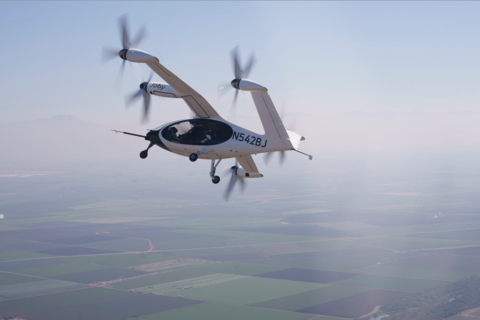Joby Aviation plans to locate its first scaled aircraft production facility in Dayton, Ohio, the birthplace of aviation. The city is also home to Wright-Patterson Air Force Base, and the headquarters of the US Air Force Research Laboratories which has played a key role in supporting Joby’s development.
Joby (JOBY) plans to build a facility capable of delivering up to 500 aircraft per year at the Dayton International Airport. The company said the 140-acre site has the potential to support significant further growth over time, providing enough land to build up to two million square feet of manufacturing space. Construction of the scaled Ohio facility is expected to start in 2024 and it is expected to come online in 2025. Joby plans to use existing nearby buildings to begin near-term operations. The company plans to invest up to $500 million as it scales operations at the site. Joby (JOBY) also disclosed that it has been invited by the US Department of Energy to submit a Part II Application for financing under the Title XVII Loan Guarantee Program, which provides access to low-interest loans for clean energy projects and would support the scaling of the facility.
Long-term investor Toyota Motor (TM), who worked with Joby on the design and successful launch of the company’s Pilot Production Line in Marina, California, plans to continue to advise Joby as it prepares for scaled production of its commercial passenger air taxi in Ohio.
Joby says that it plans to start hiring in the coming months, with early roles expected to focus on the build out of the scaled facility and the machining of parts that will initially be incorporated into Joby’s California low-volume production line.
Joby’s production aircraft is designed to transport a pilot and four passengers at speeds of up to 200 mph, with a maximum range of 100 miles and a quiet noise profile. The company plans to operate these aircraft as part of aerial ridesharing networks in cities and communities around the world, starting in 2025, building on partnerships it has developed with Delta Air Lines (DAL) and Uber Technologies (UBER).
